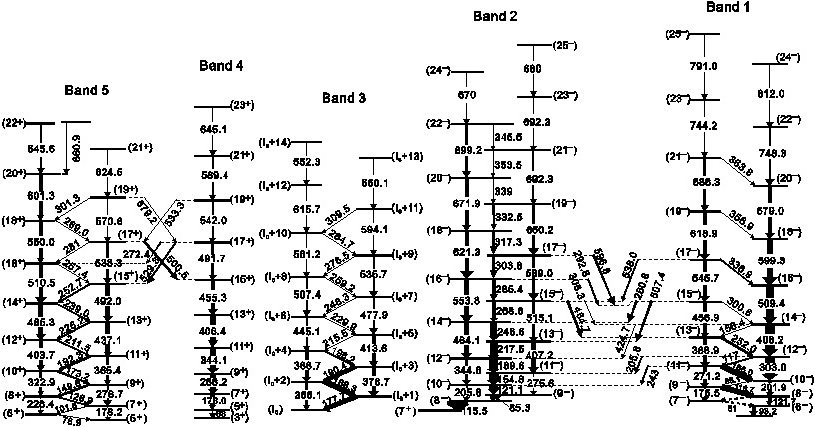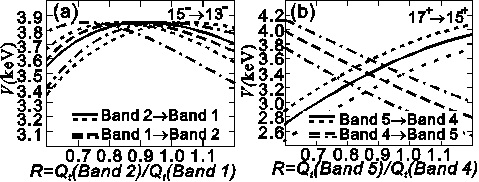The high-spin states in 174Re have been investigated by researchers at Institute of Modern Physics, Chinese Academy of Sciences (IMP), as a part of a continuing effort to obtain information on collective and single particle phenomena in odd-odd nuclei in rare-earth region.
The experiment was performed at the Japan Atomic Energy Agency (JAEA) using the 152Sm(27Al, 5n) fusion-evaporation reaction. Five rotational bands (see Fig. 1) were built by analyzing about 200 million coincidence events obtained by Gemini (aγ-ray detector array consisting of 13 large volume HPGe detectors with BGO shields). Two rotational bands were observed for the first time and the other three were extended considerably.
Expected low-spin signature inversion was confirmed in Bands 1 and 2, consistent with the systematics observed in the previous work of the researchers at IMP. As a new phenomenon, low-spin signature inversion with slight splitting was also observed in Band 5, and explained tentatively in this work as the admixture between neutron orbital f7/2and hg/2.
Differences in deformation were deduced experimentally for the first time in odd-odd nuclei in this mass region (see Fig. 2). These differences could be attributed to the deformation driving effects by one quasi-proton (quasi-neutron) while the other quasi-neutron (quasi-proton) is only a spectator. Additionally, a new 4-quasiparticle band was discussed (band 3), and the ground state of 174Re was assigned to a state with π1/2−[541]⊗ν5/2−[512] configuration.
The results have been published in Physical Review C 86, 014323 (2012).
The article can be linked as follows: http://prc.aps.org/abstract/PRC/v86/i1/e014323.

Fig.1 Level scheme of 174Re deduced from the present work. (Image by IMP)

Fig. 2 Differences in deformation deduced experimentally. (Image by IMP)

